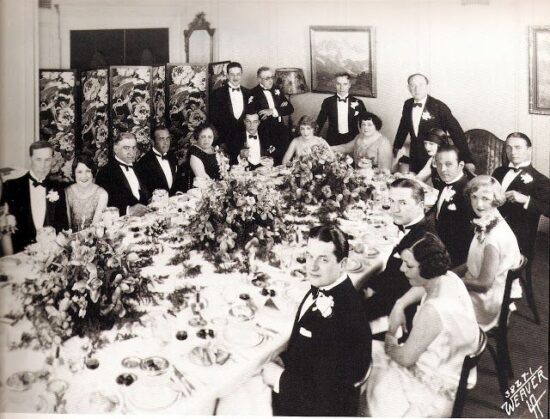
The dinner party differs from the cocktail party in one very important respect. Hemmed in as you are by a dinner party place setting, it’s generally not possible to seek new company if you find the people around you a trifle dull, awkward or outright odd. No, you must stay put and make conversation as best you can.
The surprising thing about this is how often necessity yields to interest and occasionally even friendship. Why? Because the qualities that make a person the opposite of dull, awkward or outright odd are often not immediately apparent. They require both time and a certain persistence to discover. (Points if here you spy the headlights of an oncoming analogy.)
In the wine corner, we emphasize that your wine drinking habits should be more dinner party than cocktail party. This is because interesting wines, like interesting people, do not — cannot — give a full account of themselves on first meeting. Quality wines consumed within an hour or two of being opened are simply incapable of revealing their whole selves, let alone their best selves. It’s the second reason we advocate tirelessly (or is that tediously?) for having mre than one bottle open at any given moment.
This is not because we want you to drink more wine. Rather, with two or more wines open you will be able to (1) taste comparatively, and (2) observe each wine’s existential arc, from fresh-out-the-bottle to whatever state it has time to arrive at as you drink it down. It’s a common and serious (as these things go) mistake to assume that wine is in its optimal state when first poured; or even that this is the state your winemaker considers ideal. That’s right. There’s a tiny piece of the winemaking work that’s on you. But relax. It’s hardly onerous.
Since most of the changes that occur after the cork is pulled are a result of the wine’s interaction with oxygen, you may well ask whether a splashy decant doesn’t achieve the same purpose. In most cases, the answer is … not really. While it can immediately nudge a wine toward more expressiveness and composure, decanting doesn’t induce the gradual development an overnight layover or two accomplishes. The chemistry in play here is complex, and it’s not even clear the scientists fully understand it.
We’re often asked if wine will be better the second or third day open. Well, if the question is really will I like the wine more, we really can’t offer an opinion, since this will always be a matter of individual taste. What we can say with confidence is that every open bottle of wine is on the move, and, experienced over time, will at some point pass through a window that you find most pleasing. Take note of it, and next time around you’ll know exactly how to handle it.
It’s this sort of experience with individual bottles that, with time, will do more to build general knowledge and develop you into a keen taster and savvy wine consumer than any other single technique I can think of.
Stop chatting up your wine. Get to know it.